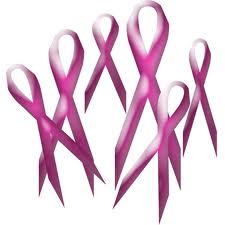 You’ve heard it before, but it’s a cliché that has earned its place: breast cancer knows no boundaries. It affects all women – of all ethnicities, young or old, blue collar and professional. Cancer doesn’t care where you worship, who you love, or how you vote. Over 30 years ago I served for 13 years as the first executive director of a Chicago based breast cancer support organization called Y-ME. Today, the Y-ME National Breast Cancer Organization is the largest breast cancer support organization in the U.S.
You’ve heard it before, but it’s a cliché that has earned its place: breast cancer knows no boundaries. It affects all women – of all ethnicities, young or old, blue collar and professional. Cancer doesn’t care where you worship, who you love, or how you vote. Over 30 years ago I served for 13 years as the first executive director of a Chicago based breast cancer support organization called Y-ME. Today, the Y-ME National Breast Cancer Organization is the largest breast cancer support organization in the U.S.
Recent news has had breast cancer organizations answering a few questions about their political agenda. For Y-ME, the answer is: they don’t have one. Instead, they have a mission, and a simple one: to assure that no one faces breast cancer alone. No one. They do this through the 24/7/365 toll-free hotline (1-800-221-2141). They also have a website.
Y-ME does not care about your color, your insurance, your background, your voting record. They care that you need someone to talk to, someone who understands. When you have questions about breast cancer, you need information you can count on from someone you can trust.
The women who staff the Y-ME Hotline are a microcosm of all women and they all have been diagnosed with breast cancer at some time in their lives!!. They are trained to provide easy-to-understand information about the complex topic of breast cancer diagnosis and treatment. They are trained not to let their personal biases affect their job or their opinion of the women they speak to through the Hotline.
If the current political flap has you concerned, remember, there are others out there who truly are lifelines for women with breast cancer and I hope you continue to support them!.
